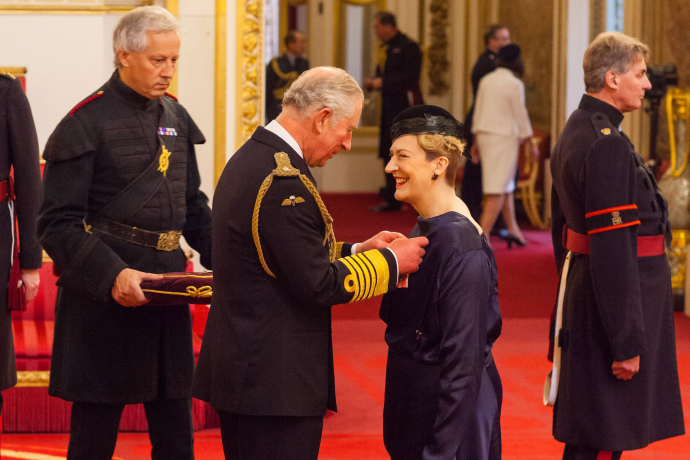A speech by HRH The Prince of Wales on complementary therapies and cancer care, The Royal College of Obstetricians and Gynaecologists, London
Published
We must collaborate with environmentalists and ecologists, farmers and agricultural professionals, food experts and food production agencies, if we are to achieve a true picture of world health and healing.
I am absolutely delighted to be contributing to today's conference - one that has particular significance in the world of cancer research. For the first time, the National Cancer Research Institute and four of the UK's leading cancer charities (of which, amazingly, I seem to be Patron!) - Marie Curie Cancer Care; Bristol Cancer Help Centre; Macmillan Cancer Relief; Breakthrough Breast Cancer – together with my own Foundation for Integrated Health - have united under one roof to discuss, explore and develop new ways of integrating complementary therapies into the care of cancer patients. I am very pleased that this symposium provides a much-needed forum for debate, and I believe it represents a positive step towards greater future co-operation.
The context for this conference is, sadly, a sobering one: the fact is that cancer rates are increasing. Some of the fast-expanding cancers such as testicular and breast cancer are more and more affecting young people. The disease now affects at least one in three of the UK population at some point in their lives. A recent report entitled “Cancer 2025” warns that cancer cases will treble over the next twenty years. These are chilling statistics, which emphasize the fact that this disease touches all of us in some way - whether as a patient, carer, relative or friend. As I'm sure you will agree, it is ironic that whilst we are living longer than we did sixty years ago, our increased overall life expectancy is itself a factor in the general increase in cancer.
We all want to understand what works and what doesn't. Many of the organizations represented here today are at the forefront of groundbreaking cancer research. This research includes studies into cell and molecular biology; diagnostic and prognostic investigations; the psychosocial aspect of cancer and the effects of genetics, environment and lifestyle on our propensity to develop the disease.
But despite reassuring advances in science, the first reactions for many to a diagnosis of cancer are still extreme fear and despair. Lives are turned upside down; patients quickly re-evaluate what is important to them. And this is why it is vital that we recognize the gifts of other healthcare traditions, and consider all the needs of cancer patients when deciding on an appropriate strategy for treatment.
The terrifying sense of doom felt when diagnosed with cancer can bring with it a profound sense of frustration and lack of control. Negative emotions can have a negative physical impact. This can, in part, be mediated by giving patients treatment choice: treatments that allow personal health management, and that help to foster a renewed sense of control through integrated approaches to health.
It comes as no surprise, therefore, that modern research into mind/body effects has shown us that there is constant interplay between our mental and physical states of wellbeing. By allowing patients treatment choice, negative emotions can, in part, be alleviated. Many complementary practitioners provide time, empathy, hope and reassurance – skills that are referred to as the “human effect” – which can improve the confidence of cancer patients, alter mindsets and produce major positive changes in the immune system.
As a result the “human effect” can greatly prolong life: it has been demonstrated that in a variety of cancers, such as breast cancer, that attitude of mind can not only raise the quality of life but in some cases can even prolong life. At the same time, we need specific treatments that are designed to improve the quality of patients' lives, and to provide relief from the unpleasant symptoms of cancer – anxiety; pain; sleeplessness; skin irritation; poor appetite; nausea and depression, to name but a few.
It is worth noting that there are some good examples of integrated cancer care in the NHS. For instance, The Christie Hospital in Manchester recently received an award for good practice from my Foundation for Integrated Health. The Hammersmith Hospital in London has also received a good practice award.
Many of you here today are working with the NHS, supporting patients in their choices of treatments: The Bristol Cancer Help Centre; The Haven Trust; The Fountain Centre; Freshwinds and The Cavendish Centre all provide patients with information and access to complementary therapies. My Foundation, together with the National Council for Hospice and Specialist Palliative Care Services has published guidelines on the use of complementary therapies in palliative care that are now widely used.
Many cancer patients have turned to an integrated approach to managing their health, finding complementary therapies such as acupuncture, aromatherapy, reflexology and massage therapy extremely therapeutic. I know of one patient who turned to Gerson Therapy having been told that she was suffering from terminal cancer, and would not survive another course of chemotherapy.
Happily, seven years later she is alive and well. So it is therefore vital that, rather than dismissing such experiences, we should further investigate the beneficial nature of these treatments. We need to listen carefully to patients' experiences of cancer, involve their carers where appropriate and work with all health-care practitioners to optimize patient-centred care.
Above all, we need to realize that the demand for integrated healthcare is going to increase. Two surveys have indicated that up to eighty per cent of cancer patients try alternative or complementary treatments at some stage following diagnosis and seventy-five per cent of patients would like to see complementary medicine available on the N.H.S. In the light of further work by the Royal College of Radiologists, which found that patients are now waiting longer for potentially life-saving treatment compared to six years ago, we can also presume that more and more people will choose complementary treatments – often, sadly, without disclosing it to their doctors. And yet less than one per cent of N.H.S. funding is devoted to implementing complementary approaches.
It seems to me that we need to devote more time and resources to researching and developing integrated approaches to healthcare. We need to analyze every aspect of cancer: the myriad of causes, symptoms and consequences of the illness. We must commission and produce research that looks at the efficacy of complementary medicine, whilst reflecting what patients are using today. Whilst some information sources do exist, many refrain from listing treatments that have, as yet, no evidence-based benefit.
As a result, patients are aware of certain treatments without knowing whether they are safe to use. In the United States however, The National Cancer Institute has an inclusive approach to web-based information and publishes factual information about treatments that have little research evidence to prove they work. Another U.S. body, The National Center for Complementary and Alternative Medicine has been funding some innovative research in complementary treatments.
However, just as one patient's experience cannot hold water as evidence, neither should one single study have the power to confirm or disprove the efficacy of potential treatments. For example, many patients use and believe in Gerson Therapy, yet more evidence needs to be available as to who might benefit or what adverse effects there might be. But, surely, we need to take a wider view of the most appropriate types of research methodology – a wider view of what research will help patients. (May I take the opportunity, at this point, to add how grateful I am to the contribution made by our American colleagues here today).
We must also cast our nets far wider in our research. Modern healthcare is not, and cannot, be purely about curing illnesses. It seems to me that we must urgently consider the causes of this pernicious disease: in short, we must examine the chemical, environmental stress and trauma-related causes of cancer. It is becoming increasingly clear that our modern world is contributing to the rise in cancer incidents. Cancer Research UK has estimated that smoking causes one third of cancers, whilst poor diet causes another third.
Research has also shown the many ways in which the Western industrialized world is increasingly affecting our health. For example, the organophosphate pesticides that were banned some fifteen to twenty years ago are still detectable in human blood today. In 1940, the world output of chemicals was one billion pounds – by 1980 this had risen to five hundred billion pounds. Three hundred and fifty different chemicals have been detected in British tap water, and modern pollutants have given rise to new terminology such as “sick building syndrome” and “multiple chemical sensitivity”.
Even our homes could be affecting our health - over 30,000 untested chemicals can be found in paints, fabrics, personal care products, pesticides and household cleaners. We cannot possibly know what the long-term consequences of such chemicals could be, especially when many cancers only develop years after exposure to carcinogens.
What we do know, however, is that both the Royal Commission on Environmental Pollution and the Royal College of Physicians issued reports last year. The former's was entitled “Chemicals in Products – Safeguarding the Environment and Human Health” and when launching the report, the Chairman, Sir Tom Blundell said that “given our understanding of the way chemicals interact with the environment, you could say we are running a gigantic experiment with humans and all other living things as the subject”.
The latter's was entitled “Allergies – the Unmet Need” and indicated that this country now has an epidemic of allergies with eighteen million people affected. Interestingly, and worryingly, chemicals in products seem to be one of the major causes.
So there are clear and urgent signs that, as well as developing cures for cancer, we need to focus on preventative measures. We need to adopt a truly holistic view of healthcare, one that takes full account of the unique physical, mental and spiritual make-up of each person. We need a healthcare system that acknowledges our interconnectedness with our environment; a healthcare system that recognizes the effect of poor diet and unhealthy lifestyles on the alarming trends in ill-health we see in the Western world today.
We must collaborate with environmentalists and ecologists, farmers and agricultural professionals, food experts and food production agencies, if we are to achieve a true picture of world health and healing.
These are tough challenges and they will not be resolved quickly. Only by taking a truly collaborative and multi-agency approach to the multitude of factors that affect our wellbeing, and hence our response to disease, can we hope to bring about substantial change in our health. Only by focussing on causes and preventative measures can we hope to improve our health, our children's health and the greater health of our planet. Ladies and gentleman, I invite you all to participate vigorously in meeting this enormous challenge and encourage you to broaden your perspective and explore different approaches and opportunities when considering the importance of research in tackling cancer care in the twenty first century.
Related content
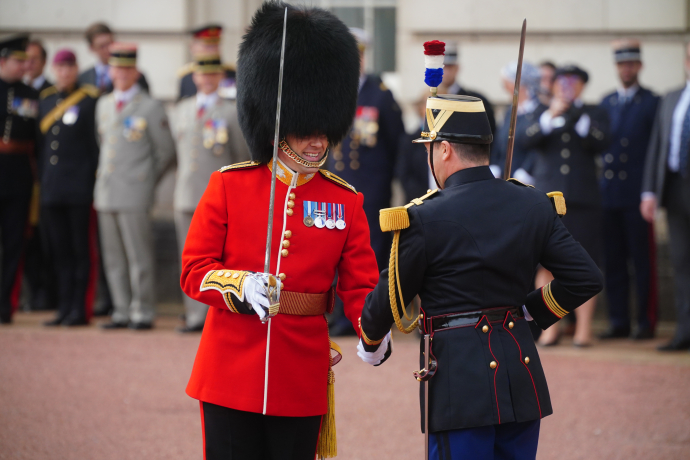
A message from The King on the 75th Anniversary on the Founding of N.A.T.O.
Message from The King for the 2024 Royal Maundy Service
It is my special prayer today that Our Lord’s example of serving one another might continue to inspire us and to strengthen all our communities.
Message from The King to mark the 70th anniversary of the end of the Korean War
It is our duty to remember what was once called “the Forgotten War”.
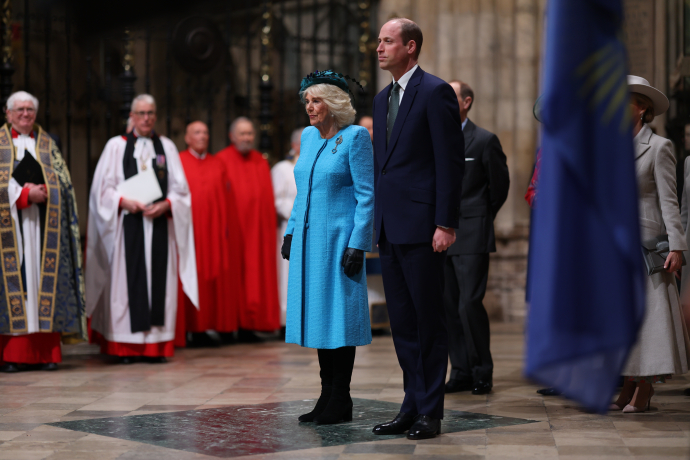
The King's Commonwealth Day Message 2024
The Commonwealth family is strongest when we are connected, through friendship.
A message of condolence from The King to the President of Tanzania following the passing of former Tanzanian President, Ali Hassan Mwinyi
My thoughts and prayers are with former President Mwinyi’s family and the Tanzanian people at this time.
Charities and Patronages
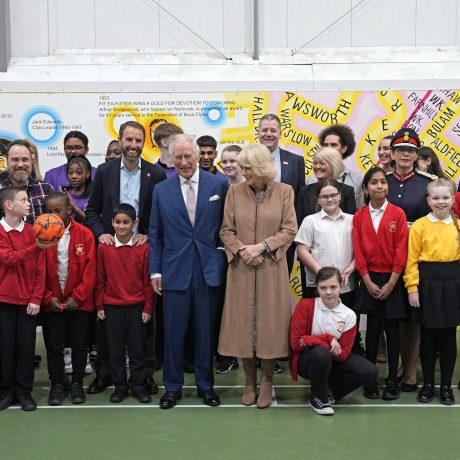
The King's message marking two years of conflict in Ukraine
My heart goes out to all those affected, as I remember them in my thoughts and prayers.
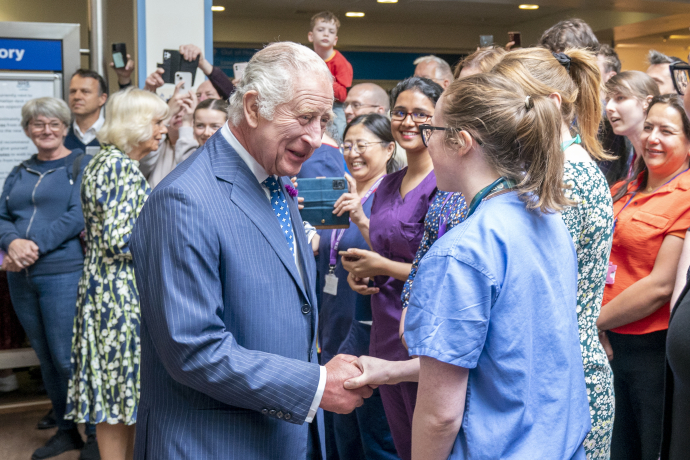
A message from His Majesty The King to Grenada marking their 50th year of Independence
On the occasion of the fiftieth Anniversary of the Independence of Grenada, it gives me great pleasure to send you all my congratulations and warmest good wishes.
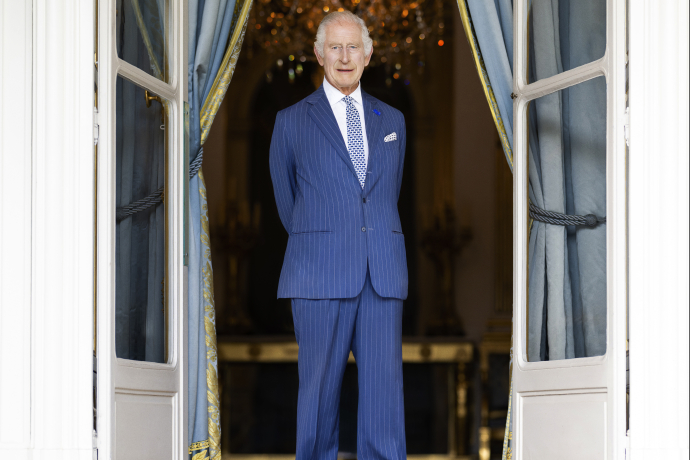
A message from His Majesty The King for the launch of Big Help Out 2024
I have long believed that one of the greatest strengths of our nation is our ability to come together and help each other through times of hardship. Throughout my life, I have...
A message from His Majesty The King to Their Majesties King Frederik X and Queen Mary of Denmark
I look forward to working with you on ensuring that the enduring bond between our countries, and our families, remains strong, and to working together with you on issues which...

The King and Faith
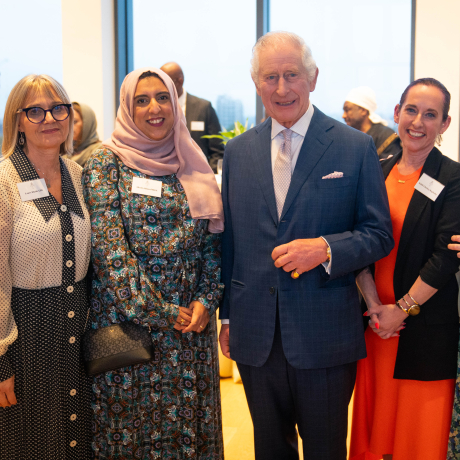
A speech by His Majesty The King at the opening of COP28, Dubai, U.A.E
Change will come by working together and making it easier to embrace decisions that will sustain our world, rather than carry on as though there are no limits – or as though...
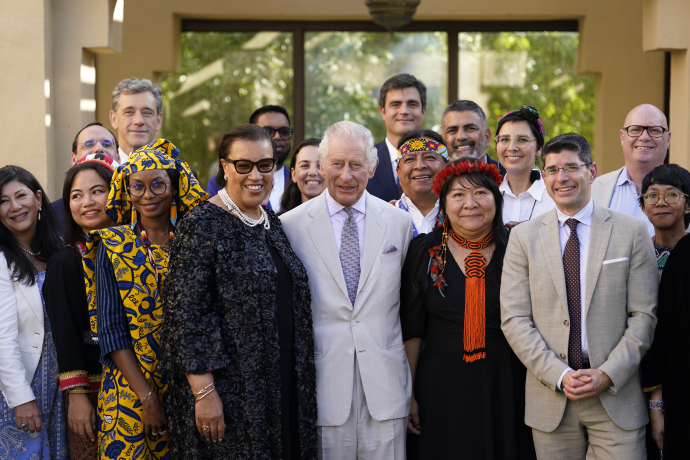
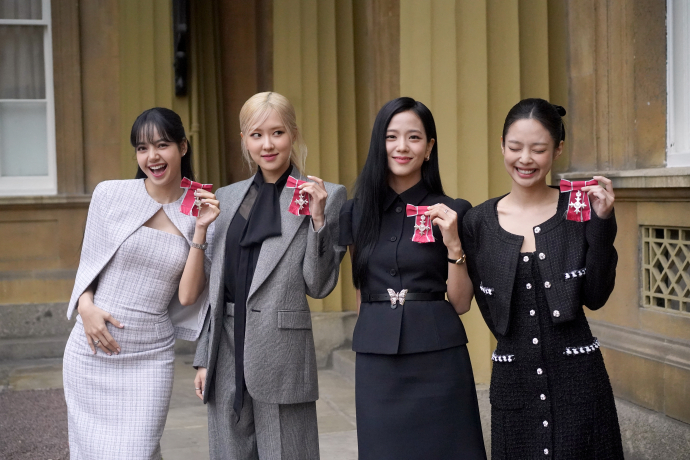
The King's speech at the State Banquet for the Republic of Korea
As our nations strive towards a harmony between progress and preservation, between the past and the present, we can look to the future with great confidence as our peoples...
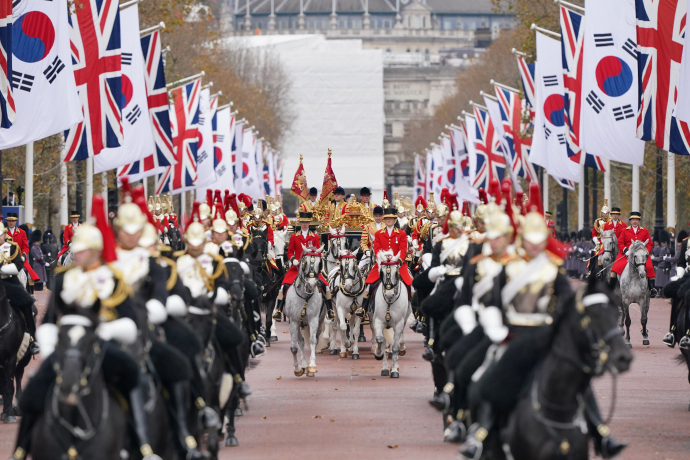
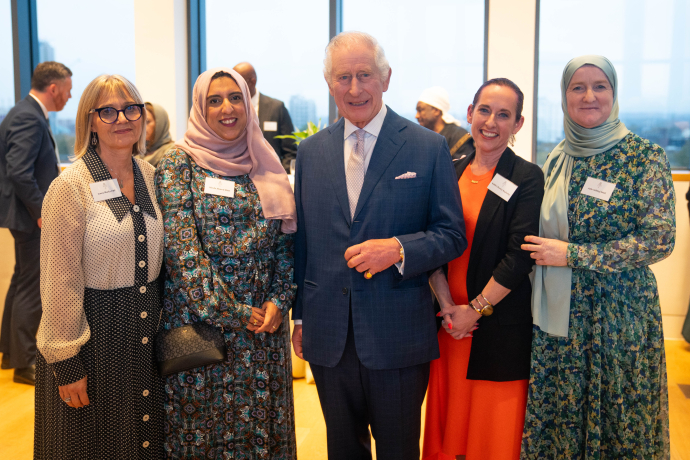
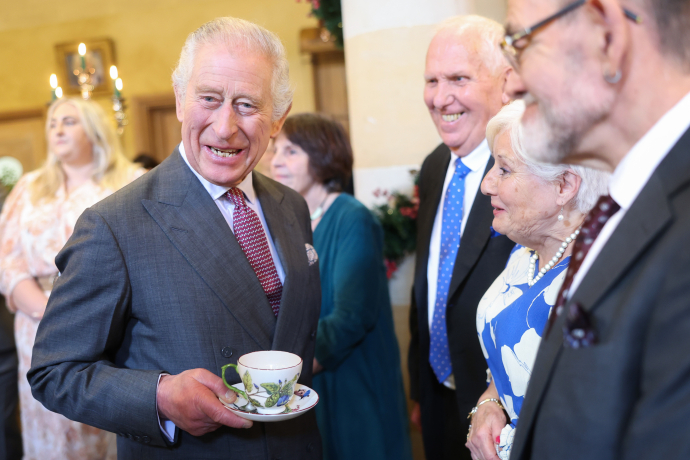
The Coronation Food Project
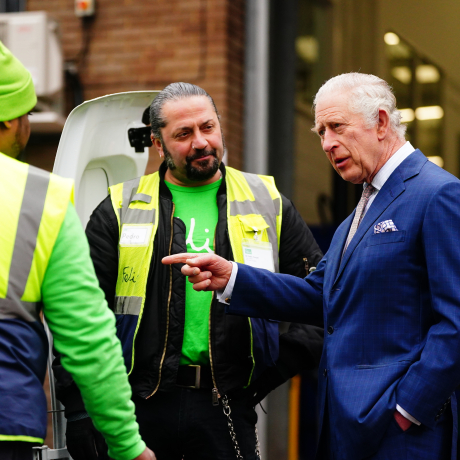
Charities founded by His Majesty The King as The Prince of Wales
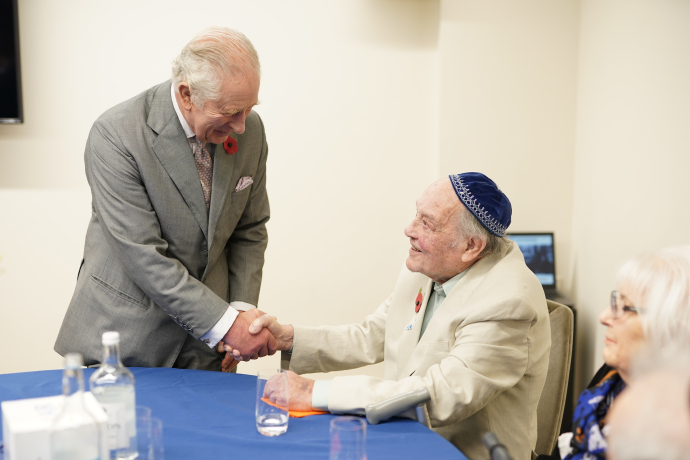
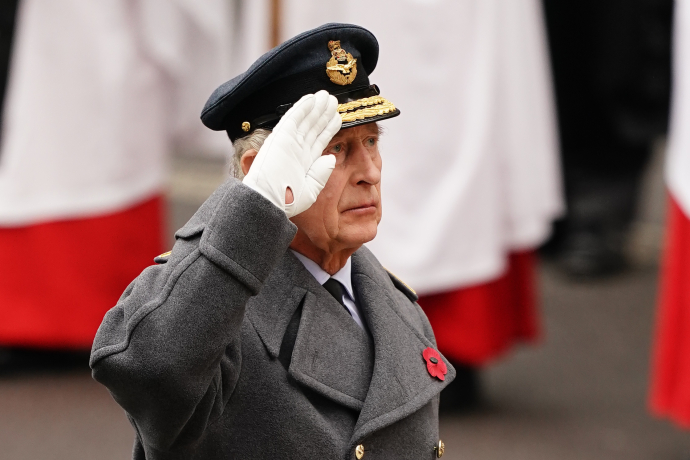
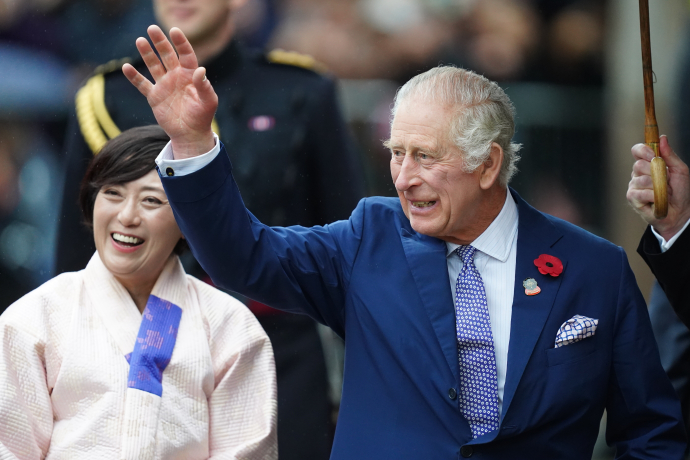
Further information about the State Visit of the President of the Republic of Korea
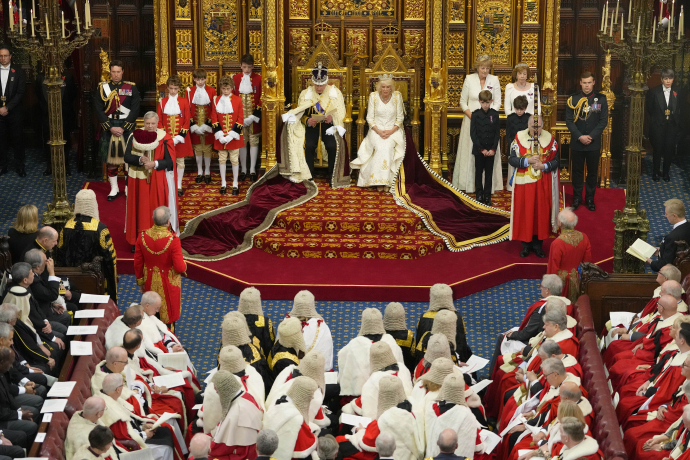
Remarks by His Majesty The King at the United Nations Office Nairobi, Kenya
As we look ahead to COP twenty-eight in another months time, we must remember what President Ruto said at the Africa Climate Summit – “we go far when we go together”.
A Speech by His Majesty The King at the State Banquet, Kenya
We both take considerable pride in renewing the ties between the United Kingdom and Kenya, a country that has long held such special meaning for my family.
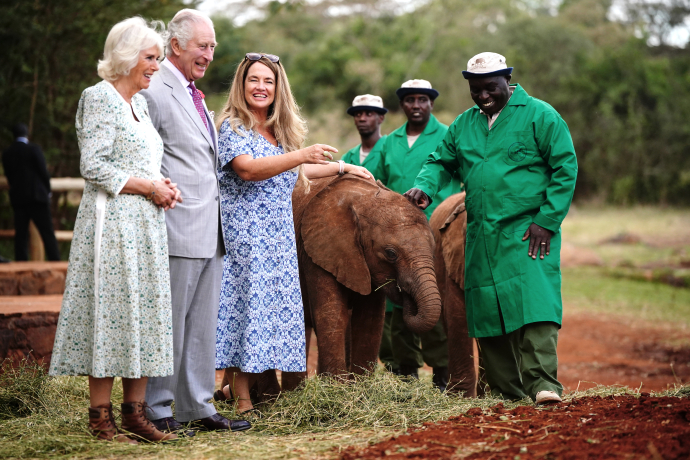
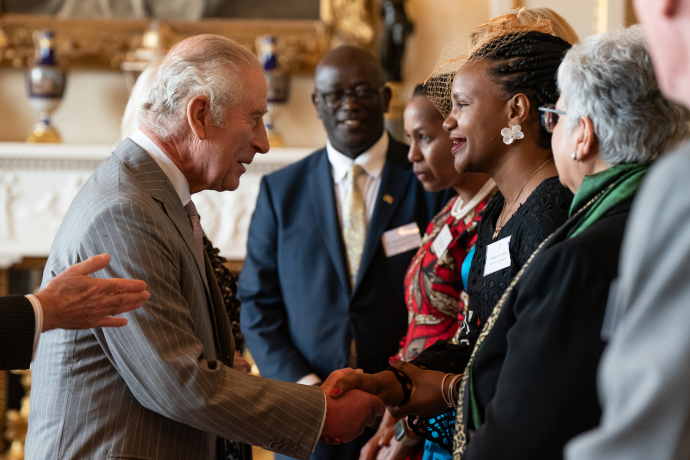
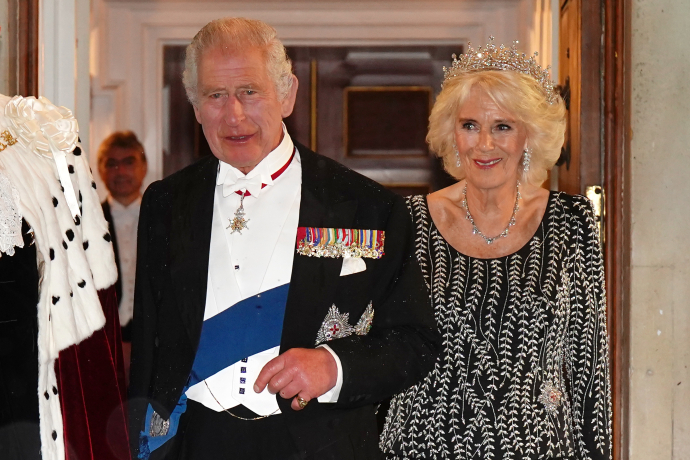
The King's speech at the French Senate
Today, in confronting the greatest challenges of our time, we continue the work of those who came before us. When General de Gaulle spoke to the French people from London in...
The King's speech during the State Banquet at Versailles
Mr. President, in all of this we can rely on our firm friendship, which is renewed and reinvigorated with each new generation.
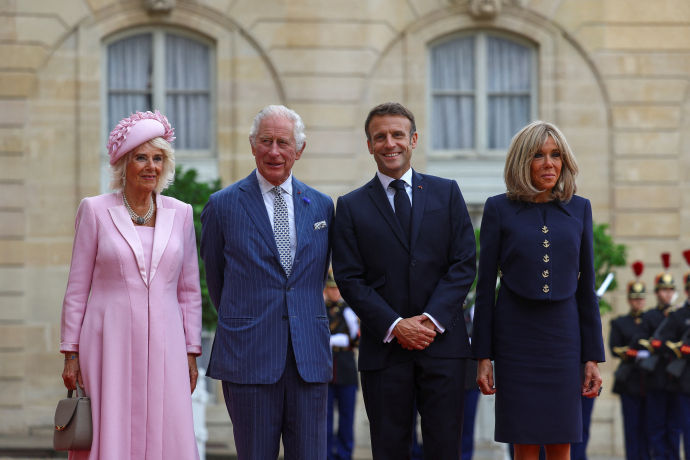
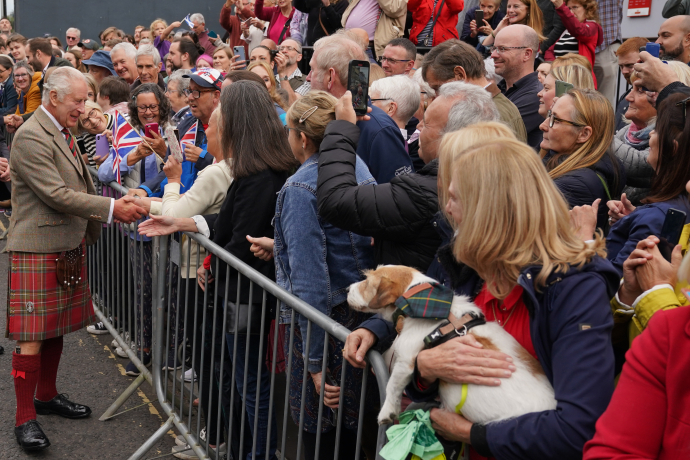

The King's message of condolence following the devastation caused by Storm Daniel.
I admire greatly all those who are engaged tirelessly in the rescue efforts in such dire conditions, and praise their selfless bravery.

